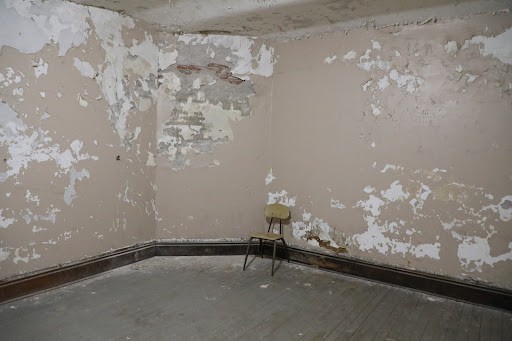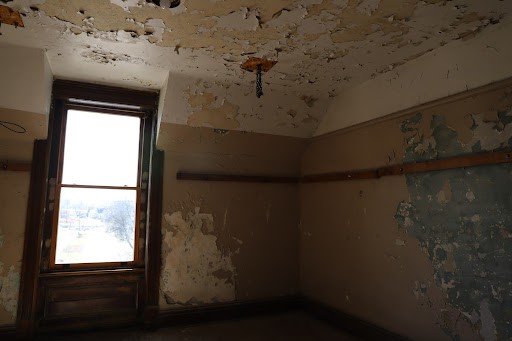
Water damage can be a serious issue for your home and your health. The different types of water damage can affect your home in different ways and can cause a range of problems from structural damage to health concerns.
Water damage can be caused by a number of things, including plumbing failures, roof leaks, and storm damage. The most common type of water damage is caused by rainwater or melted snow that gets into your home through the roof or windows. Other types of water damage can include sewage backups, floods, and burst pipes.
Types of Water Damage
Contents
The main types of damage that happen due to water are structural damage, mold growth, and health risks.
Structural damage can include anything from weakened beams or foundations to broken pipes or flooring. All of this damage is usually covered by home insurance, but the repairs can be expensive and time-consuming.
Mold growth can occur very quickly after water damage, and it can cause a number of health problems. Mold spores are released into the air and can cause respiratory problems, allergies, and asthma attacks. They can also cause skin irritation and other health problems.
Health risks from water damage include everything from Legionnaires’ disease to infections. These risks vary depending on the type of water damage, but they can be serious and even deadly.
Why Water Damage Is Bad For Your Health
Water damage is bad for your health for a number of reasons. Not only can it cause structural damage, mold growth, and health risks, but it can also promote the growth of bacteria and viruses that are already present in your home. This means that water damage can cause exposure to dangerous diseases, including Legionnaires’ disease, influenza, and even the flu. Here are more reasons why it is bad for your health and why you should not ignore it.

Foul Smells.
It may take you back to when you were a child and your mom or dad just let dinner burn. The bad smells that come from water damage can also be directly related to deadly bacteria, viruses, and other dangerous pathogens lingering in the air.
The reason why these smells are prevalent stems from the fact that water damage causes mold growth. Once this happens, the mold spores become airborne and can cause all sorts of respiratory problems, especially in those who are already susceptible to them.
The Centers for Disease Control and Prevention (CDC) warns that water damage and the accompanying bad smells can cause a number of health issues, such as:
– Respiratory problems
– Allergic reactions
– Asthma attacks
– Skin irritation
– Infections
– Headaches
The CDC also states that people with asthma, allergies, and chronic respiratory problems are especially at risk from the dangers of water damage and its accompanying bad smells. A good way to stop foul odors is by hiring a professional restoration company, such as the folks at cottongds.com, who provide water damage services that include biosafety containment to minimize health risks. So if you or someone in your family suffers from any of these conditions, it is important to ensure that you have a plan in place for getting rid of it as soon as possible.
Causes Stains.
One of the main problems with water damage is that it can cause stains on your walls, floors, and furniture. Not only is this unsightly, but it can also be a health hazard. Bacteria and mold can grow in the moist environment created by water damage, and this can lead to respiratory problems and other health issues.
Increases Allergens.
If water damage causes a mold infestation in your home, you may end up with a higher level of allergens in the air which you breathe. This can lead to all kinds of health issues, from general respiratory problems to more specific complications such as asthma.
Causes Fungal Growth.
Water damage can cause fungal growth, which is bad for your health. Fungi can cause a variety of problems, such as respiratory infections, skin problems, and even food poisoning. They can also trigger asthma attacks and other respiratory problems.
What’s more, fungi can thrive in moist environments, such as water-damaged buildings. And since most fungi reproduce through spores, they can quickly spread to other areas of your home and buildings.
Influences Asthma.
Water damage can even trigger asthma. Although asthma is commonly triggered by allergies, genetics, smoke, and other environmental factors; some people report that their condition worsened after prolonged exposure to mold or fungi found in water-damaged buildings. Furthermore, the risk of developing an allergy is higher for children who live with someone who suffers from asthma.
It Causes Electrical Damage.
One of the main concerns with water damage is the risk of electrical shock. Water can easily penetrate through materials and create an electrical current. In some cases, this current can be strong enough to cause serious injury or even death.
If you are caught in a situation where there is water damage, always be careful of any open electrical outlets. Do not touch appliances or plug into them until they are properly checked by an electrician. Additionally, do not run appliances that have gotten wet because it could lead to shock or electrocution.
To prevent electrical damage caused by water, always have a qualified electrician inspect your home after a flood or water damage event.
When water damage occurs, it can have several different effects. The type of impact that the water has is based on the surface area of contact and what material was impacted by the liquid.
If a small puddle is formed, then there will likely be minimal effects on the structure or items inside that are being affected. With these reasons why water damage is bad for your health, you should have enough knowledge about the situation.